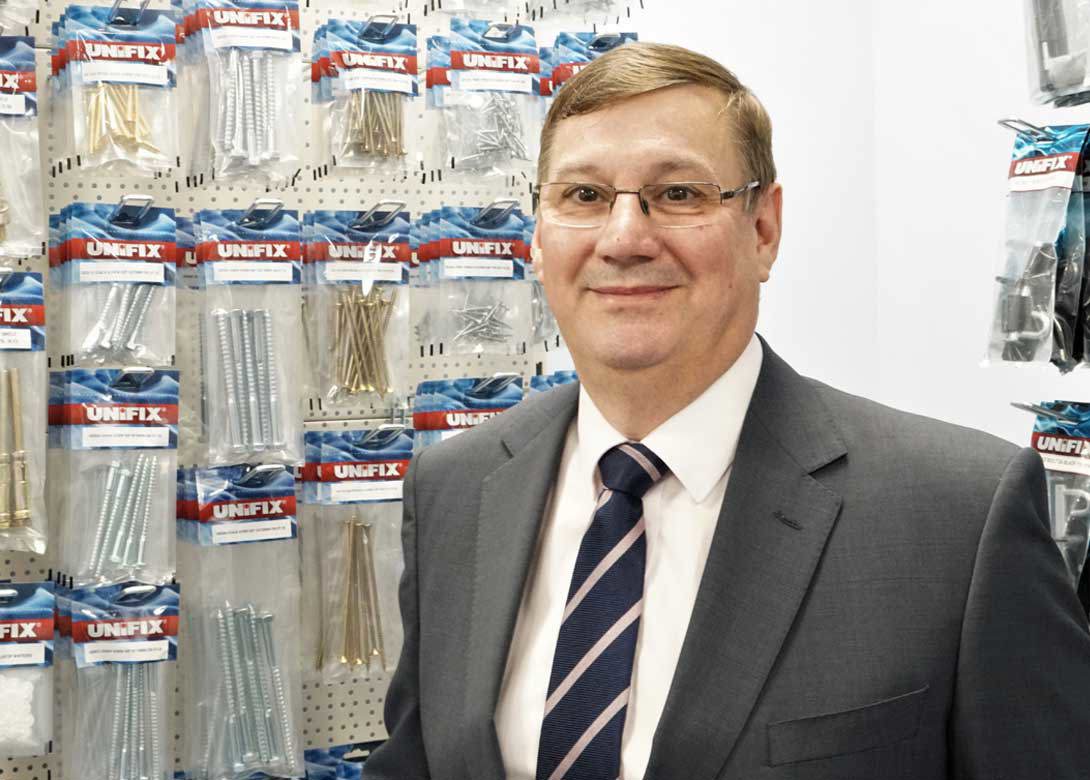

A review and preview of the global fastener market
Named after the Roman god who is often depicted as having two faces – due to its ability to look to the future and to the past – the Janus Perspective is a unique feature that includes a wide cross section of global fastener business leaders, who have all contributed their retrospective of 2019 and thoughts on prospects and challenges for 2020.
Ian Doherty, CEO
2019 has been a challenging year in the fastener market in the UK. Against a backdrop of a slowing world, EU and UK economic growth, the dreaded B word – BREXIT – has loomed large over the landscape.
If the prospect of BREXIT has done one thing it has been to create an unprecedented level of uncertainty in the whole UK economy. That has translated into reduced levels of business confidence, investment, and construction activity. Whilst there are pockets of positive news, the overall picture has been one of subdued activity and intense price competition – as players seek to maintain volume and share in a difficult market.
One trend that came more sharply into focus in 2019, and one which I expect to have even greater prominence was environmental concerns. Across the world we have seen greater and greater coverage given to concerns over climate change. The green agenda is here and here to stay! There are several aspects of this trend which impact the fastener industry.
According to many published sources, making one tonne of steel creates about 1.9 tonnes of CO2, by the time allowance is made for the energy used in forming and manufacturing a fastener is added, 2 tonnes of CO2 is a useful benchmark. Bringing a 20 foot container from China to Europe uses about 0.7 tonnes of CO2 – the fasteners in that container probably equate to around 40 tonnes of CO2, so the manufacturing CO2 far dominates the transport elements. 40 tonnes of CO2 is what an average family car would produce driving 400,000km. This should provide a driver for innovation in fasteners, which can perform whilst containing less steel (or other material) and thus have less environmental impact.
A second aspect to the green agenda is sustainability and the requirement for companies to demonstrate their actions in minimising the impact on the environment. At Hexstone we have been driving environmental improvements across the business, moving to LED lighting, replacing conventional lead acid batteries in MHE with lithium-ion, eliminating plastic tape and replacing it with paper tape and moving to FSC approved cardboard packaging with increased recycled content and recyclability.
By achieving ISO 14001:2015 accreditation we are demonstrating our commitment to reducing our impact on the environment. The improvements we can make are small in comparison to the CO2 impact of steel in fasteners, but this is a crisis and we must all do what we can for the planet. Whilst BREXIT may be a current fixation in the UK, in the long-term, climate change is almost certainly a much bigger issue and one that is with us to stay.
Another trend that has been on the increase is the need for traceability in the supply chain. As this becomes the norm, there will be a further drive to embed these processes in core systems. Working with BIAFD – our UK and Ireland association – we are introducing 2D barcode formats that provide machine readable formats for key data including country of origin and batch codes.
As we move into 2020, sadly I do not see a more positive outlook. World economic growth remains sluggish, the prospect of an end to the US/China trade war seems as distant as ever and the final outcome of BREXIT still looms over the UK. Protectionism appears to be on the rise and with it the risk that further tariffs and barriers to free trade may be introduced – including anti-dumping duties. Whilst 2020 will see the UK in transition out of the EU, the longer-term trade deal (or no deal) is still to be negotiated and may lead to the relocation of manufacturing out of the UK and with it the associated fastener usage.
However, I believe that tough times are a spur to change. I expect to see an increased level of consolidation within the industry as companies seek scale efficiencies and as financially weaker companies fail to weather the current conditions. All of this will continue the drive for efficiency in the supply chains, using IT and EDI to reduce transactional costs and optimise stockholdings and availability levels. I am sure the industry will emerge stronger from these challenges, but the short-term road may be a bit bumpy.

Will joined Fastener + Fixing Magazine in 2007 and over the last 15 years has experienced every facet of the fastener sector - interviewing key figures within the industry and visiting leading companies and exhibitions around the globe.
Will manages the content strategy across all platforms and is the guardian for the high editorial standards that the Magazine is renowned.
Don't have an account? Sign Up
Signing up to Fastener + Fixing Magazine enables you to manage your account details.